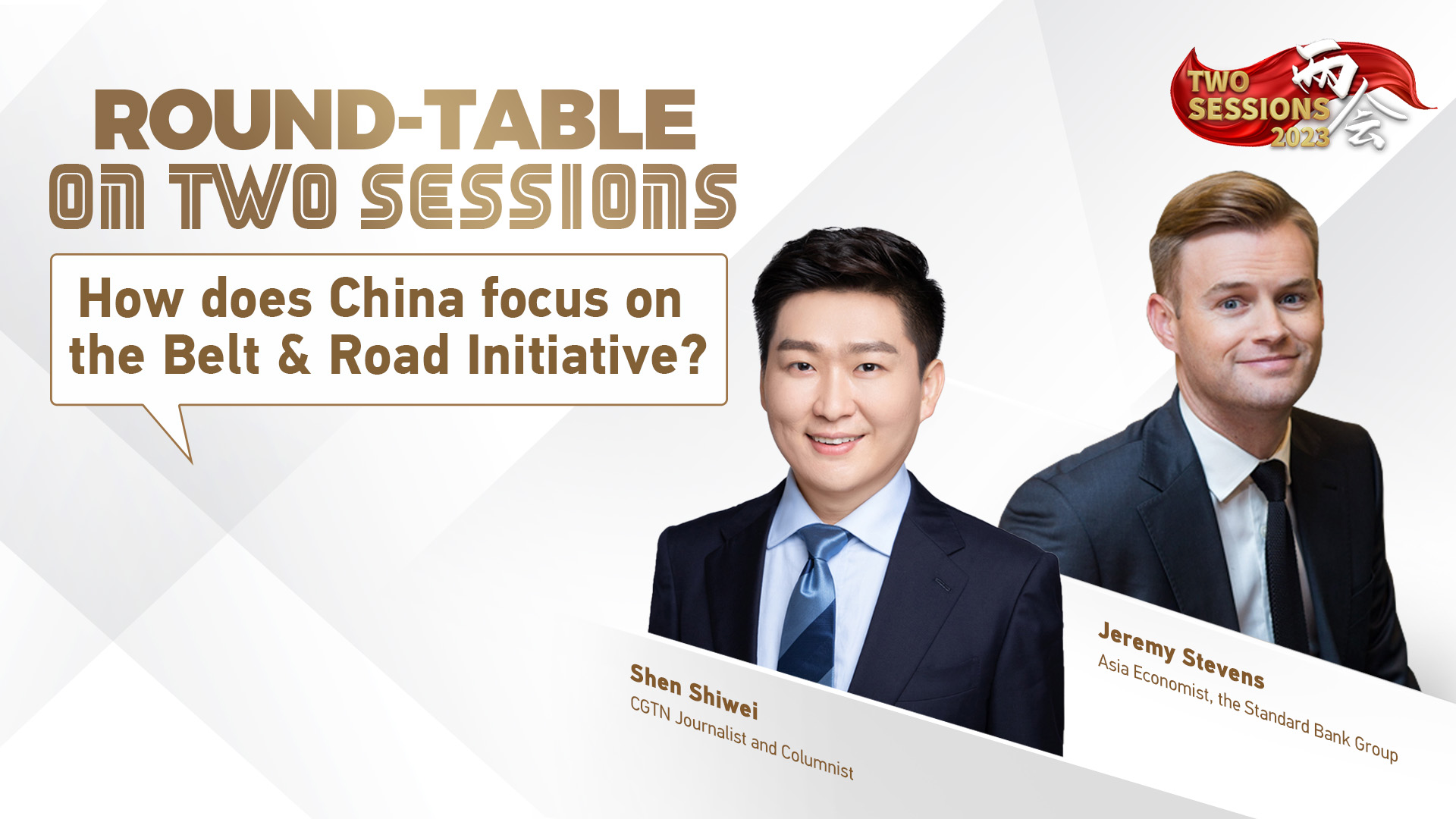"I hope that the rest of the world can move off this sort of zero-sum competitive analysis," Jeremy Stevens, a Standard Bank Group Asia economist, told CGTN's Shen Shiwei at the "Round-table on Two Sessions".
01:27

Regarding some institutions that have been critical in their analysis of the Belt and Road Initiative (BRI), Stevens suggested they should be positioning themselves to offer complementary opportunities to those created by China rather than trying to usurp it, compete with it and get in the way of it.
The economist said that whether it's policy advice or feasibility studies, there's complementary roles that can be played. "So if China is offering this, what are you gonna offer that can also benefit?"
"I don't see the BRI as a zero-sum case in any respect and I don't think China does," Stevens emphasized.
"The heart of win-win is we want this, what do you want? Let's try to deliver both sides so that they both get what they deserve," the economist said, noting that all countries and regions, whether the U.S., Europe, China or any emerging market, benefit from much more stable, faster growing, modernized and industrialized emerging markets. "It's an end goal that everybody should be trying to achieve," he added.